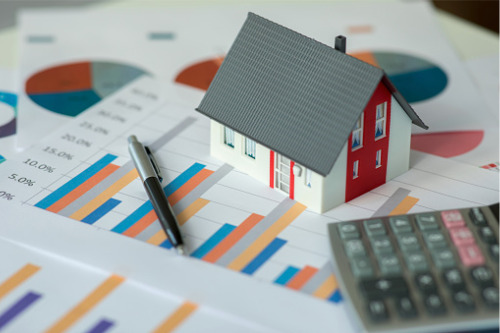The market outperformed experts' predictions last year – can it keep up the streak?

Australia’s property market defied expectations in 2020 – so what does 2021 hold for Aussie real estate?
When COVID-19 locked down the country, analysts predicted a double-digit drop in the housing market. However, those dire predictions never materialized, and prices – which ended the year just 0.7% below pre-pandemic levels – are on the rise.
So how will the market fare in 2020? When The New Daily asked a group of real estate experts to prognosticate, none would give a figure. However, they did talk about some key things to look out for in the property market this year.
The biggest news could continue to be market growth in regional areas. Dr Sarah Hunter, chief economist at BIS Oxford Economics, told The New Daily that if local COVID-19 cases remained under control and unemployment stayed stable, regional areas and detached houses in smaller capitals could see continued growth. Hunter said that there was still significant demand from those taking advantage of buyers’ grants and stamp-duty concessions.
“Falling interest rates improved affordability, which helped demand, but supply hasn’t responded all that much yet as the volume of transactions – although they are turning – have not written anywhere near as much,” Hunter told The New Daily. “In terms of long-term sustainability, there’s still demand shock around [reduced] migration, which will likely make apartments cheaper.”
Anna Porter, director of Suburbanite, agreed. She predicted that prices for off-the-plan units would fall, largely due to investors whose worry about the strength of capital city rental markets will make them less likely to purchase property.
Read more: Experts see strong price growth in housing market in 2021
Vacancy rates in some capital cities rose above 4% last year as the pandemic slammed tenant-heavy industries with job losses, The New Daily reported. And data from the Australian Prudential Regulation Authority showed that investors have been slow to resume repayments; one third of deferred loans at the big four banks in October were investment loans, APRA reported.
“There could be a bloodbath that comes to fruition in a short, compressed time frame if people sell in quick succession in areas that don’t have undersupply issues,” Porter told The New Daily.
On the other hand, the impact of loan deferrals may not be as severe as predicted. According to the Australian Banking Association, the number of deferred loans cratered over the course of six months last year – plummeting 66%, from 493,440 in June to 169,677 in November. And CoreLogic head of research Eliza Owen predicted that house prices would continue to rise in the first half of 2021, ahead of the end of loan repayment holidays.
Owen also said that the RBA’s historic interest-rate cuts and programs like HomeBuilder and the First Home Loan Deposit Scheme outweighed the market’s negative factors.
“The only thing worth noting when you see incentives for first-home buyers, for example, it tends to have a vacuum effect where purchases that may have happened anyway are pulled forward,” Owen told The New Daily. “Once these schemes run out, we may see demand slow a little bit, and the other thing that could slow price increases is APRA intervention.”



